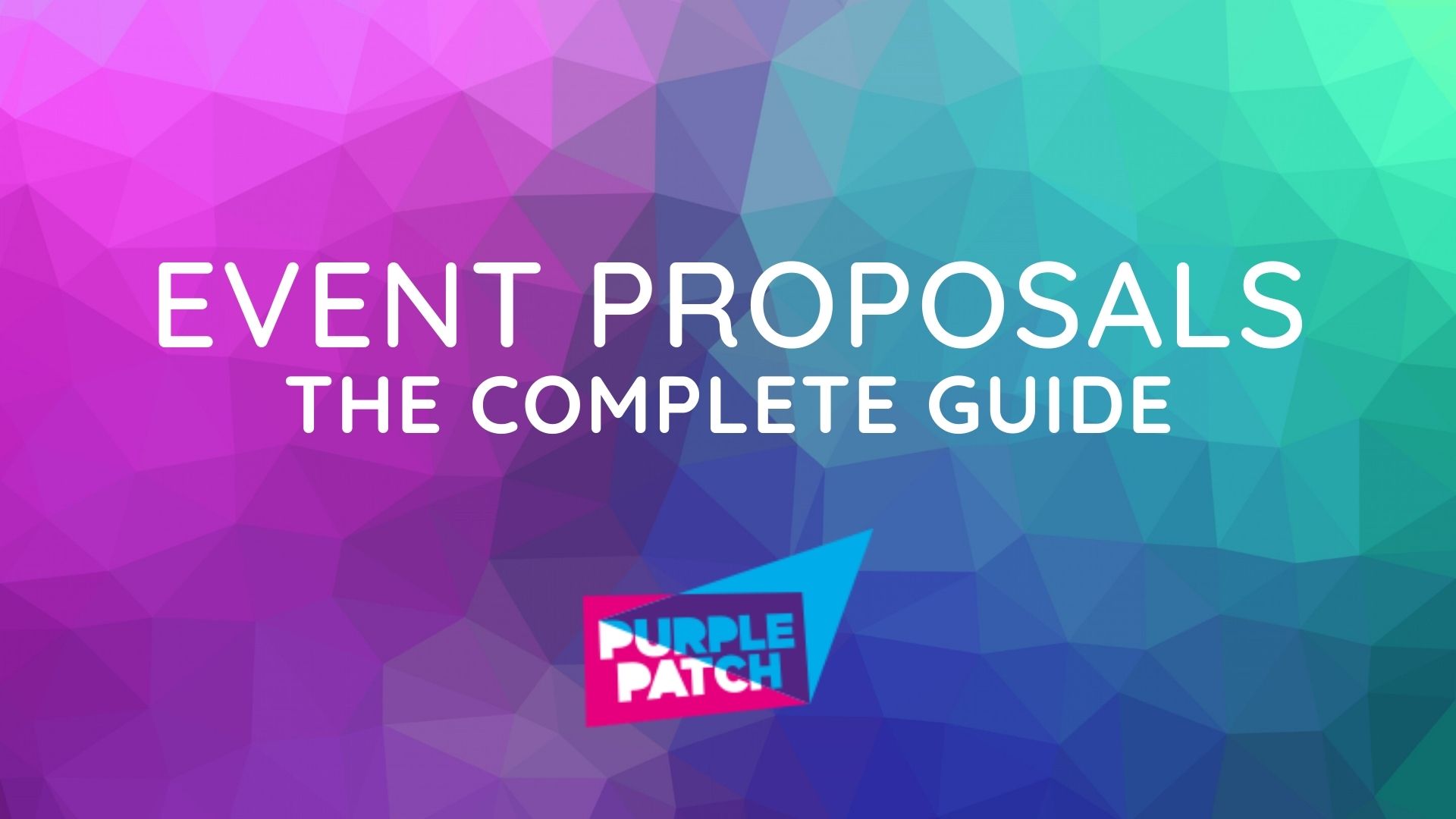Small events, when strategically designed and executed, can create a substantial impact by fostering stronger connections, delivering targeted messaging, and driving specific business outcomes. Whether it’s an investor meetup, a focused workshop, or a niche conference, these smaller gatherings offer unique opportunities for personalisation and engagement that larger events sometimes struggle to match.
If you are a corporate event organiser and wish to learn the secrets of professional corporate event planners when it comes to maximising the impact of small events, look no further! In this article, we will explore the strategies, tools, and practices that can help businesses get the best results from small events. But before we dive in, let’s understand the hidden potential of small events better and have a look at some examples.
Understanding the Value of Small Corporate Events
Small corporate events, such as team-building activities, intimate conferences, and targeted product launches, play a crucial role in corporate strategy and culture. Here are some key advantages:
- Cost-effectiveness: Small events typically require fewer resources, making them more affordable.
- Better interactions: Smaller gatherings foster a more intimate atmosphere, enabling deeper connections and more meaningful interactions among participants.
- Targeted engagement: Small events allow businesses to focus on specific audiences, ensuring that the content and activities are highly relevant to the attendees.
- Flexibility: Planning and executing small events can be more flexible and agile. Companies can quickly adapt to changes, experiment with new formats, and respond to feedback in real-time, enhancing the overall event experience.
- More feedback and insights: With a smaller group of participants, collecting and analysing feedback becomes more manageable.
To better understand the potential of small events, consider these examples:
Product Launches: Companies may hold exclusive events for key clients and industry influencers to launch a product. This enables personalised demos and discussions, generating excitement and advocacy from influential guests.
Team-Building Activities: Regular, small-scale team-building exercises enhance morale and collaboration. They offer opportunities for bonding, trust-building, and improved communication, leading to a more cohesive and productive team.
Niche Conferences: Niche conferences or seminars can establish a company as a thought leader. By focusing on specific topics and offering personalised attention, businesses attract high-quality attendees and build lasting relationships.
Customer Appreciation Events: Exclusive gatherings for key customers, like private dinners or VIP tours, strengthen loyalty and deepen relationships by making customers feel valued.
Focus Groups and Workshops: Small focus groups or workshops with clients or industry experts provide valuable insights and foster partnerships. These sessions help refine products, services, and strategies through direct feedback.
Mentorship Programs: Small mentorship events between senior leaders and junior employees or startups promote learning and development, fostering innovation and reinforcing a culture of growth.
Charity and Community Involvement: Small charity events or community projects, like clean-ups or fundraisers, enhance a company’s reputation and contribute positively to its public image.
Innovation Showcases: Hosting small showcases for new ideas or technologies can inspire employees, attract partners, and promote an innovative culture.
Investor Meetups: Small, exclusive meetings with investors offer a more personal insight into the company’s vision and plans, helping to build trust and secure investments.
How to Maximise the Impact of Small Corporate Events
Making small corporate events impactful relies on thoughtful planning and execution. Here are some streamlined tips for maximising impact:
Design a Rich Attendee Experience
Design every touchpoint — from invites to follow-ups — with your guests in mind. Ensure a smooth flow, engaging content, and personalised interactions.
Key Actions:
- Curate tailored welcome packs and digital resources.
- Mix presentations, networking, and interactive elements to keep energy high.
- Personalise communications to make each attendee feel valued
Focus on Personalisation
Use attendee data to create customised agendas and content tailored to their needs. Personal touches make a lasting impression.
Key Actions:
- Segment your audience for more targeted sessions.
- Offer personalised itineraries based on attendee interests.
- Collect preferences in advance for a bespoke experience.
Offer Networking Opportunities
Small events are ideal for fostering meaningful connections. Create structured networking opportunities.
Key Actions:
- Include dedicated sessions like icebreakers or roundtables.
- Use event apps to encourage one-on-one connections.
- Facilitate follow-up interactions to maintain relationships.
Improve Accessibility
Ensure your event is inclusive for all participants, regardless of physical or digital barriers.
Key Actions:
- Make sure the venue is fully accessible.
- Offer virtual participation for remote attendees.
- Provide translation or interpretation services as needed.
Build a Sense of Community
Foster a collaborative atmosphere where attendees feel connected and engaged.
Key Actions:
- Encourage small group activities and discussions.
- Create ongoing communities through follow-up groups or meetups.
- Design interactive panels or collaborative forums.
Gather Feedback
Regularly collect and act on feedback to refine future events. Immediate and post-event insights are invaluable.
Key Actions:
- Implement live polls and surveys during the event.
- Use post-event surveys to gather in-depth responses.
- Analyse feedback to identify areas of improvement.
More Practical Tips
-
- Create a Thematic Focus: Align the event’s theme with current trends or business goals to make it more relevant and impactful. A strong theme can provide a cohesive experience and help convey your key messages. Ensure that all aspects of the event, from decorations to activities, support the chosen theme.
- Incorporate Interactive Elements: Include activities such as Q&A sessions, live polls, and hands-on workshops to engage participants actively. Interactive elements keep attendees involved and make the event more dynamic. Encourage participation by providing opportunities for attendees to ask questions, share their thoughts, and collaborate.
- Use Storytelling Techniques: Create a narrative that highlights the key messages and objectives of the event. Engaging stories can make the event more memorable and impactful. Use real-life examples, case studies, and testimonials to illustrate your points and connect with your audience emotionally.
- Utilise Surprise Elements: Introduce unexpected activities or guest speakers to create a memorable and exciting experience for attendees. Surprises can add an element of excitement and keep participants engaged. Consider incorporating elements such as surprise entertainment, giveaways, or unannounced guest appearances.
- Choose Venues that Reflect the Event’s Purpose: The setting plays a crucial role in the event’s vibe. Choose a venue that aligns with your goals — whether it’s a casual space for creative brainstorming or a sophisticated location for high-level discussions.
- Offer Unique Value Propositions: Differentiate your event by offering something exclusive, such as insider insights, early access to new information, or exclusive networking opportunities. This makes attending worthwhile, even for a small group.
Use Tools to Increase the Impact of Small Events
Strategic use of tools and techniques can elevate small corporate events, driving engagement and delivering stronger outcomes. Here are key things to consider:
Audience Engagement Tools
Use tools for audience engagement to enhance participation with live polls, quizzes, and Q&As. Use them to gather instant feedback, gamify sessions, and make discussions more dynamic
Event Management Platforms
Event management platforms simplify planning with features like automated registrations, reminders, and analytics. Centralise tasks, track attendee engagement, and gather real-time feedback.
Communication and Collaboration Tools
Streamline event planning and attendee communication. Keep teams aligned with dedicated channels, and use in-event chat features to promote networking.
Email Marketing Platform
Create targeted email campaigns, design visually appealing assets, and maintain a consistent online presence to drive registrations and create a buzz around the event.
Case Studies
The success of small corporate events often lies in the details and the strategic use of available resources. Below are some real-world examples and case studies that demonstrate how small events can yield significant results when executed thoughtfully:
Case Study #1: Small-Scale Product Launch Leading to Major Brand Awareness
A boutique tech firm planned a small, invite-only event to launch a new software product aimed at a niche market. Instead of organising a large-scale launch event, the company opted for an intimate gathering with 50 industry influencers, key clients, and select media representatives.
Key Strategies:
- Exclusive Invite List: By targeting a specific group of influential industry figures, the company ensured that those attending were genuinely interested in the product and had the power to spread the word.
- Interactive Product Demonstrations: Attendees were invited to hands-on demonstrations in a relaxed, one-on-one setting. This allowed the firm to showcase the product’s features while addressing individual questions and feedback.
- Personalised Follow-Ups: After the event, each attendee received a personalised thank-you message along with access to exclusive content and trial offers.
Results:
The personalised and targeted approach led to high-quality media coverage and strong social media buzz. Despite the small scale of the event, it generated significant attention, resulting in increased brand recognition and a surge in early sales
Case Study #2: Internal Team-Building Event to Support the Company Culture
A mid-sized marketing agency organised a small, two-day retreat for its leadership team to improve collaboration and strategise for the upcoming year. With just 20 participants, the focus was on creating a highly interactive and impactful experience.
Key Strategies:
- Focus on Company Values: The event was centred around the agency’s core values—innovation, teamwork, and growth. Each session was designed to reflect these principles, with activities such as problem-solving workshops and creative brainstorming.
- Peer-Led Sessions: Instead of relying on external speakers, the event featured sessions led by team members, promoting knowledge sharing and internal expertise. This approach helped strengthen relationships and build trust within the group.
- Post-Event Plans: The event concluded with actionable takeaways, with each team member responsible for implementing specific strategies back in the office.
Results:
The retreat led to noticeable improvements in collaboration and morale, translating into smoother project execution and higher client satisfaction. The event also fostered a stronger sense of ownership and alignment among team leaders.
Case Study #3: Small Networking Event Generating New Business Partnerships
A start-up in the renewable energy sector wanted to expand its network and explore new partnerships. Instead of attending large industry conferences, they decided to organise a private networking breakfast for 30 selected professionals from related sectors.
Key Strategies:
- Targeted Attendee List: The company carefully curated a list of potential partners, focusing on businesses with aligned values and complementary services.
- Facilitated Networking: The event featured structured networking activities, such as rotating roundtable discussions, where participants could share their needs and explore potential collaborations.
- Immediate Follow-Up Actions: Post-event, the company provided tailored summaries of the discussions and introduced key contacts to encourage continued conversations.
Results:
The event led to multiple partnership agreements, some of which resulted in joint projects and expanded market reach. The intimate setting fostered stronger connections, making it easier for participants to trust and commit to collaboration.
Final Thoughts
Whether aiming for client retention, team-building, or industry networking, small events provide unique opportunities to achieve significant business goals with a focused and thoughtful approach. By focusing on personalisation, targeted engagement, and post-event actions, businesses can amplify the impact of even the most modest gatherings.
At Purple Patch, we specialise in crafting bespoke event experiences that resonate with your goals and leave a lasting impression on your attendees. Whether you’re planning an intimate client gathering, a focused team-building session, or a niche industry seminar, our expert team is here to bring your vision to life. With our expertise in personalisation, creative design, and corporate event management, we ensure that every detail is handled, allowing you to focus on what matters most — connecting with your audience.
Ready to make your next small event truly memorable? Contact us today!



